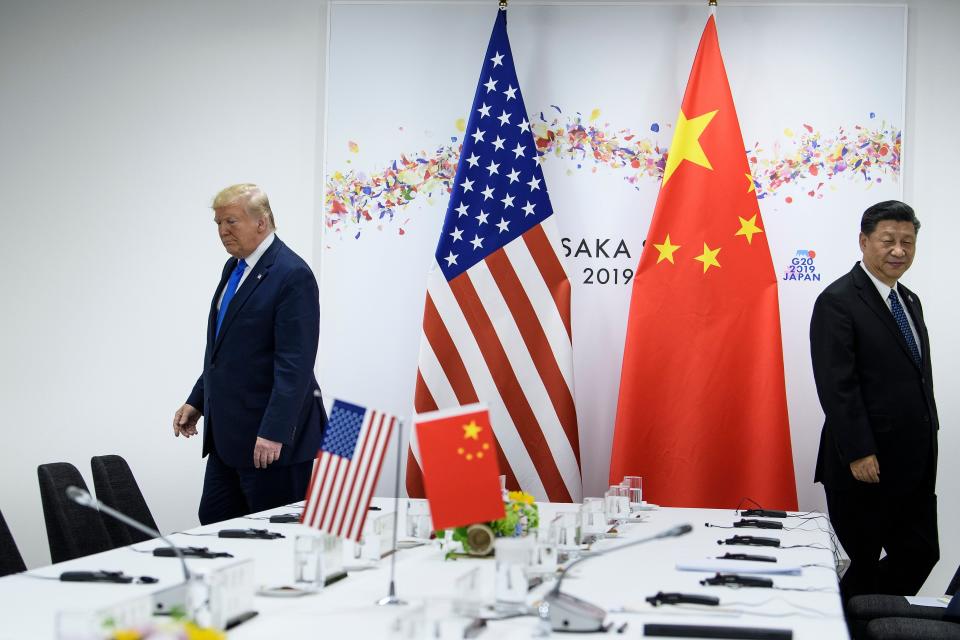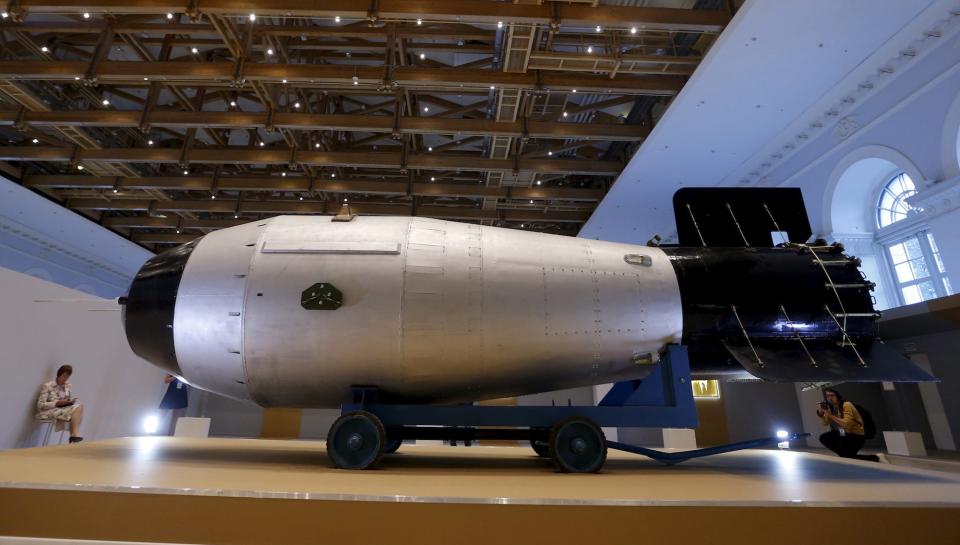Trump's ex-national security advisor wants to restart US nuke testing. Nuclear experts warn that's not a good idea.
- Oops!Something went wrong.Please try again later.
- Oops!Something went wrong.Please try again later.
A former Trump advisor says a second Trump term should involve restarting nuclear testing.
Nuclear experts pushed back on the idea, warning that it'll lead to a global arms race, among other problems.
Nuke testing could prompt Russia and China into nuclear competition.
Donald Trump's former White House national security advisor is arguing that a second term in office should involve restarting US nuclear testing for the first time in over 30 years.
That's a bad idea, nuclear weapons experts say, as the US, Russia, and China could quickly find themselves in an arms race if the ban on that kind of testing isn't maintained.
Robert O'Brien, ex-adviser to former President Trump, wrote in Foreign Affairs Tuesday that in order to counter China and Russia's continued investments in their nuclear arsenals, the US should test new nukes.
"China has doubled the size of its arsenal since 2020: a massive, unexplained, and unwarranted expansion. The United States has to maintain technical and numerical superiority to the combined Chinese and Russian nuclear stockpiles," O'Brien wrote. "To do so, Washington must test new nuclear weapons for reliability and safety in the real world for the first time since 1992 — not just by using computer models."
O'Brien added that the US should also resume production of uranium-235 and plutonium-239, the primary isotopes of nuclear weapons.
While it's unclear if such actions would be Trump's priorities in a potential second term, O'Brien's recommendations were swiftly condemned by nuclear weapons and arms control experts.
"The ignorance of Trump advisors continues to stun," Jon B. Wolfsthal, a nuclear arms control and nonproliferation expert and an Obama administration official for national security affairs, posted on X, saying that the "US has the world's most reliable and advanced nuclear weapons."

Wolfsthal said that if the US resumed testing, it "would only make it easier for RF [Russian Federation] and PRC [People's Republic of China] to resume nuclear testing and catch up." He added that new nuclear materials also weren't needed, as the US has stockpiles available from the Cold War.
"Nuclear bullying doesn't work and leads to arms racing," Daryl Kimball, executive director of the Arms Control Association, wrote, calling O'Brien's opinion "dangerous, counterproductive Dr. Strangelove thinking."
No one wins a nuclear arms race, he said.
Kimball called out the difference between O'Brien's argument for the resumption of nuclear testing with the Biden administration's current policy, which remains dedicated to the status quo.
In 2023, US President Joe Biden's National Security Advisor Jake Sullivan said: "The United States does not need to increase our nuclear forces to outnumber the combined total of our competitors in order to successfully deter them. We've been there. We've learned that lesson," adding that truly effective nuclear deterrence comes with a "better" approach, not a "more" approach.
The US repeatedly detonated nuclear weapons during the Cold War, most often at the remote Nevada Test Site, where the explosions could be seen in Las Vegas. The nuclear surface explosions shifted deep underground in 1962 and continued until 1992.

Jeffrey Lewis, a professor at the Middlebury Institute of International Studies at Monterey and a nuclear proliferation expert, said in a thread on X that the number of US nuke tests — 1,149 — is more than that of Russia, 969, and China, 45, combined.
"Resuming nuclear testing would reduce US technical superiority over Russia and China because they would immediately follow and have much more to learn," he said.
China has been expanding its arsenal, stockpiling more than 500 operational nuclear warheads as of May 2023, the Pentagon said last fall in its annual China Military Power Report. But even if that doubles to 1,000 by 2030, as the Pentagon estimates, it'll still pale in comparison to the US and Russia's numbers: 5,044 and 5,580, respectively.
In his Foreign Affairs story, O'Brien suggests that increased US development and testing will help deter China, rather than compel it to counter the growing US capabilities in an arms race.
Hans Kristensen, the director of the Nuclear Information Project at the Federation of American Scientists, said in a social media post that "there are some 'advisors' you just shouldn't take advice from."
O'Brien's push for resumed testing shouldn't necessarily come as a surprise. Back in June 2020, in the final months of Trump's presidency, the US State Department told Congress it suspected Russia and China had defied testing moratoriums, raising concerns the US would follow. Just a month prior, US officials considered conducting a so-called "rapid test" just to demonstrate readiness to America's adversaries.
At the time, experts pushed back on both the State Department's accusations and the potential for resumed testing, noting that the US does many of the same activities as Russia and China without conducting full tests.
It remained unclear if Trump would have been game for resumed nuclear testing or breaking the longstanding Comprehensive Test Ban Treaty, but his first-term advisors, such as O'Brien's predecessor John Bolton, believed "unsigning" the treaty should be a top priority for the US. Now, the discussion is back again.
Read the original article on Business Insider


